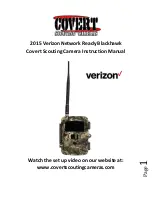
• The flash unit must not be used if the case has
been so badly damaged that internal com-
ponents are exposed. Remove the batteries!
• Do not use defective batteries!
2. Preparations
2.1 Power supply
The flash unit can be operated with any of the fol-
lowing batteries:
• 2 alkaline-manganese dry-cell batteries, type
IEC LR03 (size AAA). Maintenance-free power
source for moderate power requirements.
• 2 nickel-metal-hydride batteries, type IEC HR03
(size AAA). They have a significantly higher ca-
pacity than NiCad batteries and are less harm-
ful to the environment (no cadmium). They per-
mit very fast recycling and are economical in
use because they are rechargeable.
• 2 NiCad batteries, type IEC KR03 (size AAA).
The batteries are exhausted if the recycling
time exceeds 60 seconds when firing flashes
at full light output. Remove the batteries from
the flash unit if you are not going to use it for
an extended period of time.
2.2 Loading and replacing the batteries
• Turn off the flash unit by its main switch.
• Slide the battery compartment cover to the out-
side of the flash unit.
• Insert the batteries as indicated by the symbols
in the battery compartment.
When loading the batteries ensure that their
+ and - poles are aligned with the symbols.
Transposed poles can destroy the flash unit.
Always exchange both batteries, replacing
them with identical batteries of the same
capacity from the same manufacturer! Do not
dispose of spent batteries in the domestic
waste bin. Spent batteries should be handed
in to an appropriate collecting point.
• Close the battery compartment cover and slide it
towards the unit’s foot.
☞
☞
89
ķ
703 47 0165.A1 Inh. 03.08.2004 7:38 Uhr Seite 89






































